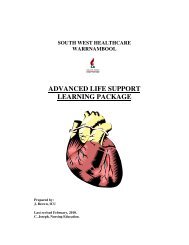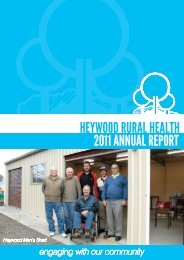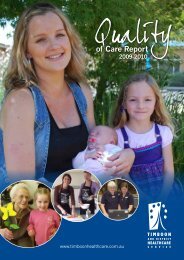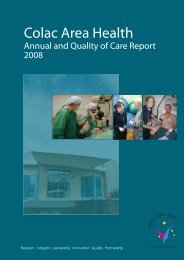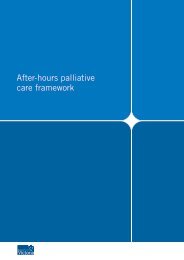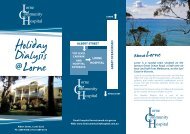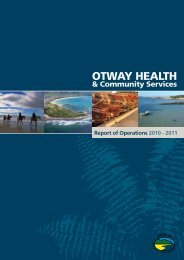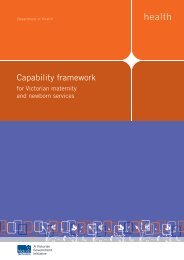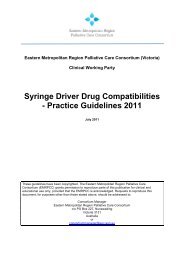Self Directed Learning Package - University of Queensland
Self Directed Learning Package - University of Queensland
Self Directed Learning Package - University of Queensland
- No tags were found...
You also want an ePaper? Increase the reach of your titles
YUMPU automatically turns print PDFs into web optimized ePapers that Google loves.
17 • <strong>Self</strong> <strong>Directed</strong> <strong>Learning</strong> <strong>Package</strong> - Introductory Registered & Enrolled NurseDyspnoeaDyspnoea is an awareness <strong>of</strong> uncomfortable breathing. It canalso be called breathlessness or shortness <strong>of</strong> breath.Thinking PointHave you ever had the experience <strong>of</strong> not being ableto breathe well? Perhaps after a strenuous exercisesession? Can you imagine living with that sensationconstantly? If you have, what thoughts or feelingscome to mind?The Australian author Tim Winton wrote in his 2008novel ‘Breath’: 15‘It’s funny, but you never really think much about breathing,until it’s all you ever think about.’Dyspnoea• is common but under-recognised• impairs activities <strong>of</strong> daily living, limits mobility, increasesanxiety, fear and social isolation• is <strong>of</strong>ten associated by residents and family withimpending death• triggers panic, and panic exacerbates dyspnoea, so thepattern becomes cyclical• may be equally or even more distressing for the family.So… what can you do to help a resident with dyspnoea?SeeRecognise and assessReview previous medical history• pre-existing illnesses e.g. COPD• exacerbating factors e.g. anaemia or pr<strong>of</strong>ound anxiety• additional factors e.g. pulmonary embolism, infection or leftventricular failure.Associated symptoms• cough• sputum• haemoptysis (blood in sputum)• wheeze• stridor• pleuritic pain• fatigue• anxiety or panic.What makes it better or worse?Observe or ask the resident:• physical activity?• posture?• environmental factors? (e.g. room sprays, pollen)• emotional factors? (e.g. anxiety, excitement, fear)• others?Key PointDyspnoea is not so much about how fast or slow,deep or shallow someone is breathing. Rather itis a subjective feeling that everyone experiencesdifferently.As a nurse, you should be able to complete anddocument a comprehensive baseline assessment <strong>of</strong> anyresident who presents with dyspnoea.



